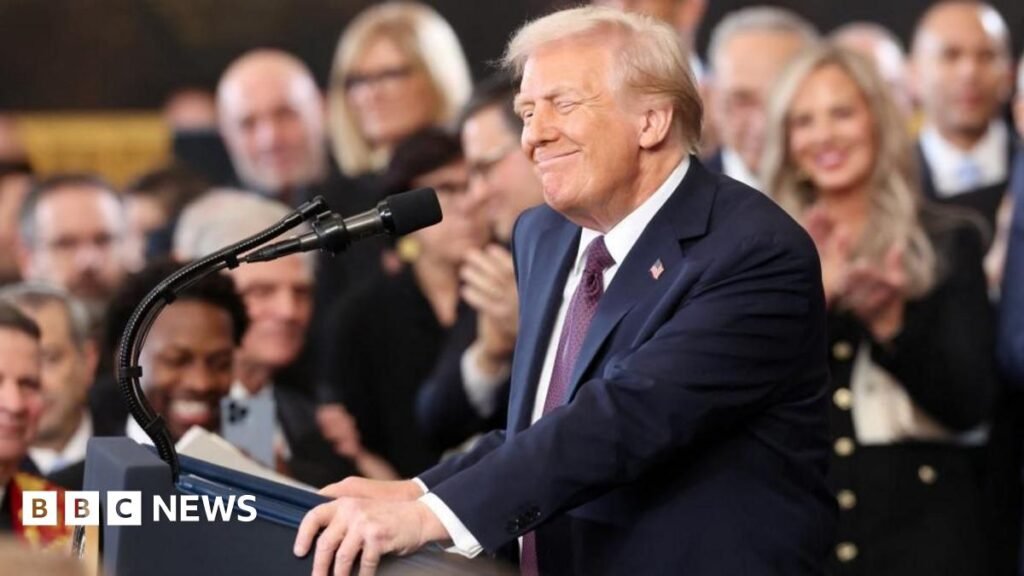Donald Trump, who returned to power on a wave of dissatisfaction with the status quo voters, promised a new “golden age” for America in his inaugural speech.
The speech was a mix of promises — and contradictions — that highlighted some of the opportunities and challenges the new president will face during his second term in office.
He paid particular attention to immigration and the economy, the issues that polls showed American voters were most interested in last year. He also pledged to end government-promoted diversity programs and noted that official US policy would recognize only two genders, male and female.
That last line drew enthusiasm from the Capitol and a standing ovation from the crowd of fans gathered in the nearby sports arena. It’s a sign that cultural issues — where he contrasted most sharply with Democrats in last year’s election — will continue to be one of Trump’s most powerful ways to connect the new president with his base.
Before outlining what this new age would entail, however, Trump painted a bleak picture of the current American political climate.
As his predecessor, Joe Biden, and other Democrats sat stone-faced to one side, Trump said the government was facing a “crisis of confidence.” He condemned the “vicious, violent and unjust use of weapons” by the US Department of Justice, which was investigating and trying to prosecute him for challenging the results of the 2020 election.
He demanded an end to the “heinous betrayals” and lashed out at a “radical and corrupt establishment” that he said was extracting power and wealth from American citizens.
It was the kind of populist, anti-elitist rhetoric that has been a staple of Trump’s speeches for a decade. However, unlike when Trump first began his ascent to the heights of US political power in 2015, Trump represents the current evolving establishment as much as anyone. And behind him on the podium sat some of the richest and most influential corporate leaders in the world.

